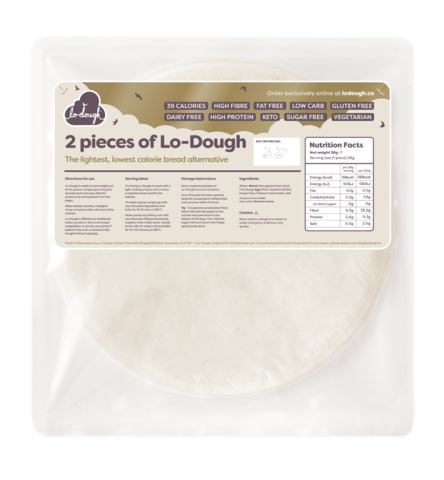Is there such a thing as too much protein?
There’s a reason fitness people love talking about protein - it’s a crucial macronutrient which works to build and maintain muscles whilst keeping you full. But is there such a thing as TOO MUCH protein?
Logic would suggest that too much of any food group would lead to some sort of consequences. Though according to the National Diet and Nutrition Survey, most people habitually consume more protein than is recommended without noticing any issues. Going over the recommended protein dose can, however, lead to weight gain, dehydration and even increased cancer risk, according to a report published on healthline.com.
Recommended protein intake
UK adults are advised to eat 0.75g of protein for each kilogram they weigh, based on the Reference Nutrient Intake (RNI). So if you weigh 70kg (11 stone), you should eat about 52.5g of protein a day. On average, men should eat 55g and women 45g of protein per day.
Whether you are into your fitness, losing weight or just being mindful about what you eat, protein is commonplace as part of any sensible and balanced diet. Health experts advise that we should eat fish, eggs and meat as part of a healthy diet, so long as we stay within the recommended guidelines mentioned above.
Too much protein - the consequences
Considerably overdoing your protein intake can mean your body can start to convert it into glucose. by a process called 'gluconeogenesis'. This literally translates to “the making of (genesis) new (neo) sugar (gluco).” The excess amount of protein may be turned into sugar to feed systemic infections in the body and lead to autoimmune diseases. Essentially, when glycogen (your body’s sugar storage) is low, protein intake is high, amino acids from your meals and your muscle become one of your main energy sources.
This is an important note for those on a keto diet - if your body continues to convert amino acids into fuel, it can keep you from getting into ketosis.
Other downsides to a protein overload
Excess protein in your system, especially for long periods of time, has raised a few concerns. Though none of them are glaringly life threatening, some have the potential to cause serious harm, suggesting it is in fact worth the effort staying within the official guidelines.
According to healthline, one of the major consequences is excessive weight gain, as a lot of protein is usually stored as fat (while the surplus of amino acids is excreted). Long term this can lead to putting on quite a few pounds, especially if too much protein also equals way too many calories.
The same report also outlined kidney damage as a danger from eating too much protein. Additionally, eating too much protein can affect people who already have kidney disease, as the nitrogen found in the amino acids that make up proteins.
Best sources of protein
So, it's clear that going way overboard has health warnings, but it certainly doesn't mean we should devalue protein for all that it is. Mindfully implementing it into your diet is still recommended. Some of the best sources of protein include:
- lean meat/steak
- eggs
- fish and seafod
- nuts and whole grains
- Lo-Dough (high protein bread alternative)
Lo-Dough as a source of protein?
Lo-Dough is a relatively new food innovation which acts as a low carb, high protein bread alternative. It can be used as a pizza base, wrap, cooked as pastry, or even blitzed and used as a healthier version of a breadcrumb for desserts. It's a great way to consume protein (2.6g per piece) without consuming calories (just 39 per piece).
As nutritional expert Emilia Thompson (PhD) says, "Lo-Dough gives you leeway" as well as the ability to get your protein fix without worrying about weight gain or excess calories.
More information on how to use Lo-Dough here.











